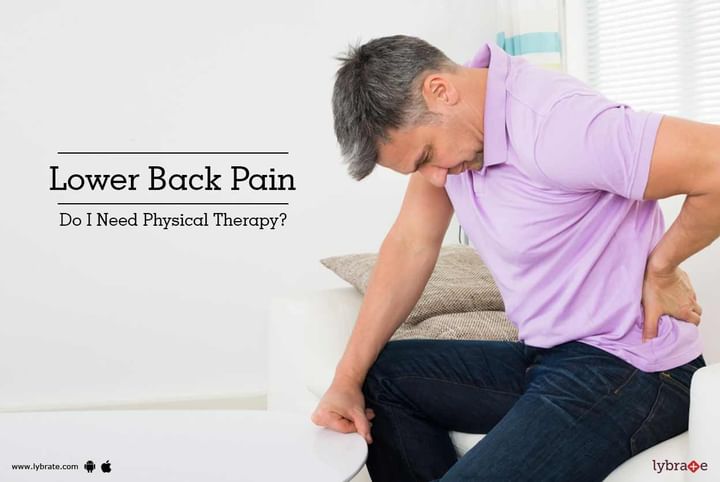Lower Back Pain - Do I Need Physical Therapy?
Lower back pain is fast becoming an epidemic not just among elderly, but across all age groups. Primary causes of back pain are quite a few including lumbar hernia, disc degenerative disease (DDD), spondylosis etc., but the symptoms are usually the same excruciating pain in the lower region of the spine, followed by stiffness. Since back pain is caused due to a number of spinal problems, it manifests differently in different patients. The pain may be dull, burning or sharp. It could also be felt at a single point or over a broad area and could be accompanied by muscle spasms or stiffness or even shooting pain in one or both legs.
Back pain can also be differentiated according to time period:
- Acute: Pain lasts for less than three months.
- Recurrent: Acute symptoms reoccur over time.
- Chronic: Pain lasts longer than three months.
Sometimes symptoms resolve on their own, but in many cases conservative treatment, such as physiotherapy, which often work better than surgery, becomes essential. Alternate therapies like surgery, acupressure, acupuncture as well as yoga and Ayurveda also help.
Physiotherapy - Exercises that work
Since the reason for low back pain is not always same, a patient’s treatment too should be tailored for his specific symptoms and condition. This is what the physiotherapist will do design an exercise plan based on the patient’s specific problem and its cause.
Physiotherapy treatments may include:
- Manual therapy, which includes direct spinal manipulation aimed at improving the mobility of joints and soft tissues
- Strengthening and flexibility exercises
- Education about what do and what not to do
- Training for proper sleeping positions, lifting, bending, and sitting as well as for working at home and at work
- Use of heat/cold treatments or electrical stimulation to help relieve pain
Physiotherapy exercises help support the back and strengthen muscles so that the spine is cushioned properly. This is why physiotherapy is relevant as a treatment for backache. Treatments like traction help in lengthening the spine and relieving compression of nerves that cause sciatica, radiating pain into legs largely due to lumbar herniation. If back pain is extreme, a patient will require physical therapy along with medication, which will help in managing pain and bringing inflammation down. But in the long term, being physically active, going for walks, sitting properly and maintaining a good posture will help the most. If you wish to discuss about any specific problem, you can consult a physiotherapist.



+1.svg)
